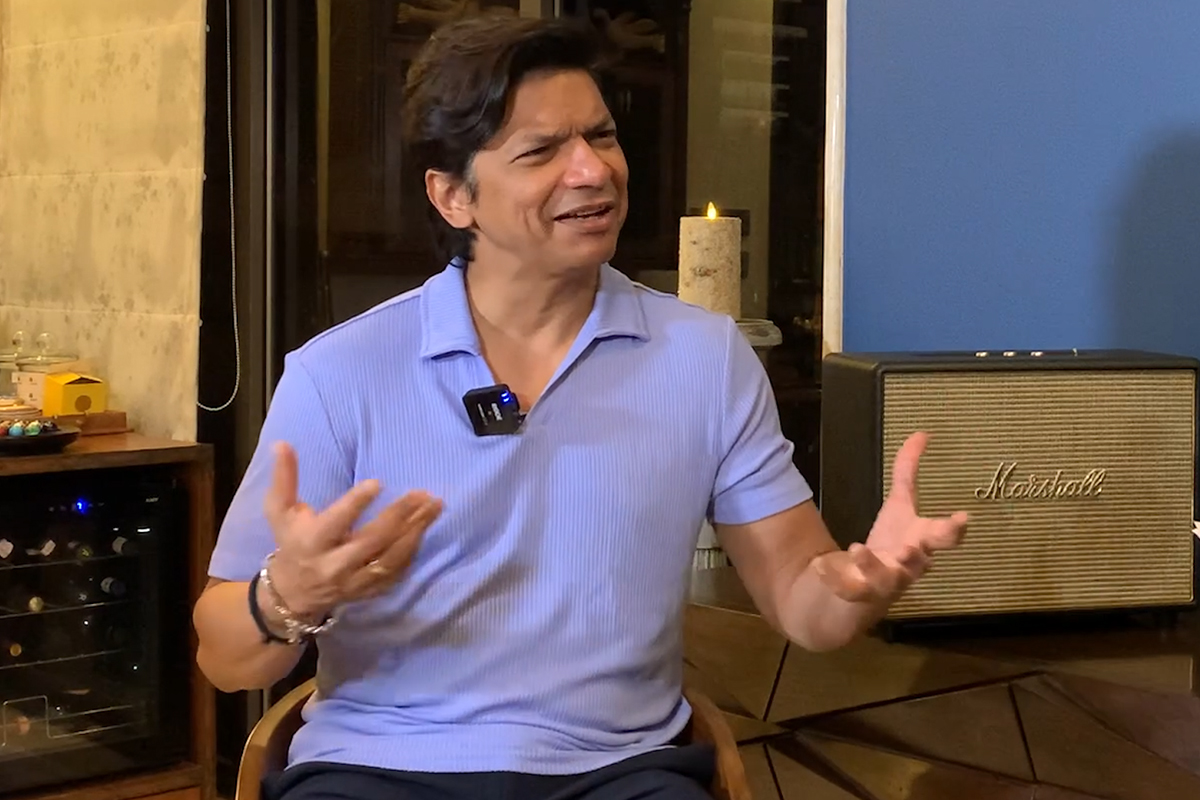


The ever-smiling Shaan, son of composer Manas Mukherjee, discusses his musical journey in this episode of Catch The Stars with Rohan Dua. Growing up surrounded by music legends, Shaan found support and opportunities in the industry. Despite initially avoiding music for family obligations, he eventually embraced his passion and pursued singing as a livelihood. Shaan’s singles, including popular tracks like “Tanha Dil” and “Gumsum,” showcased a range of emotions and reflected his personal experiences. He attributes his writing style to the influence of renowned lyricists while aiming to connect with younger audiences.
Excerpts from the interview
Rohan Dua: After losing father at a young age, I want to understand the challenges and opportunities you faced in turning singing into a livelihood.
Shaan: I’ve been looking forward to this evening. You have interviewed many influential people from various fields, and I’m glad to finally get a chance to talk with you. Growing up in Mumbai as the son of a renowned composer, I had a great start with singers like Asha Bhosle, Kishore Kumar, and respected composers who held my father, Manas Mukherjee, in high regard. My father may not have achieved great success or popularity, but he had a lot of goodwill in the industry. His name opened doors for me, and people were kind and supportive when they found out I was his son. He was a talented and generous person who had a significant impact on my career.
Rohan Dua: When did you decide to make music your livelihood?
Shaan: I initially avoided making singing my profession and engaged in other business ventures due to family responsibilities. It would have been very selfish of me to decide to sit and sing and not do anything for my family. But I kept finding myself drawn back to music, and eventually, I took a risk and decided to focus on pursuing it as a livelihood. It wasn’t an easy choice, and I questioned whether it was a selfish idea. However, my passion for music and the support I received from my family led me to embrace it.
Rohan Dua: Your mother must have been supportive too?
Shaan: I always had the support of my mother, who worked and sang in chorus groups even when my father was alive. Her dedication to music and the musical environment at home influenced my decision. My mother was working, and she continued to sing in chorus groups from the 1970s until the early 2000s. She received recognition and awards from other senior singers. So, while it may not have been extraordinary, music was an integral part of our lives. Both my parents were trained singers, and we had a room in our home dedicated to music. It was a beautiful space where my father, a fantastic composer, would hold sessions with musicians. Being surrounded by music from a young age made me feel rich, not in terms of wealth but in musical experiences.
Rohan Dua: Did your singles aim to redefine bachelorhood in your music? I was a bachelor at that time, and songs like Tanha Dil or Gumsum ho kyu resonated with many youngsters, including those studying mass communication and journalism. It became a popular choice for us to listen to.
Shaan: Tanha Dil was still my more serious work. Before that I had done an album with a light and youthful vibe, and it wasn’t meant to be deep or profound. It was more about enjoying life and celebrating the bachelor lifestyle and saying something as frivolous as “We are best at Lovelogy”. By the time I did Tanha Dil, I was mature. My friends had started to go abroad for better livelihood. So, it dealt with the feeling of loneliness. I wrote these songs unwittingly to be honest. Also Bhool ja, I was never particularly heart-broken. But I saw my friends deal with the part of heart-break and that inspired me to write Bhool-ja. Gumsum I wrote for my wife and then girlfriend. She would sulk sometimes, and I didn’t know what exactly upset her. I would keep assuming, what exactly is the cause, and that only worsened the situation. This song was one way of expressing that frustration.
Rohan Dua: So, who influenced your writing style that we see in your early songs and the success of your songs?
Shaan: As I said I grew up in a household of musicians. We had Nida Fazli, Yogesh ji and Madhosh Bilgrami come over to our place. My father used to work with them. What I felt was their shayari was superlative but it was difficult for youngsters to connect with it. Such heavy lyrics wouldn’t be suitable for pop music. So I started writing by myself. Until then no one had written about loneliness. Yes, it’s a known fact that one has to leave behind their home in search of better opportunities, yet you remain attached to that place and people. I tried to make up for my lack of vocabulary with novelty of thought. As far as success is concerned I am a big believer in destiny. Sometimes, when there is a winning streak your work keeps getting appreciated irrespective of how much talent you have.
Rohan Dua: At one point in your career, you transitioned from singing melodious numbers to more quirky songs like “Subah Ho Gayi Mamu” and “Main Aisa Kyu Hoon.” What led to this change, and did you consider it a step back from your otherwise impressive body of work?
Shaan: Not really. I actually enjoyed singing those songs, and they were successful too. Throughout my career, I have sung songs of various genres. Perhaps, music composers didn’t approach me for sad or Sufi numbers because they perceived me as a very happy person. They might have thought that even if they gave me a song about someone’s death, I would make it sound cheerful.